The Deutsche Samvaad: German Influences on Indian Constitution Making
A paper aimed at providing a comprehensive analysis of how Germany shaped the institutions of the new Indian republic.
A paper aimed at providing a comprehensive analysis of how Germany shaped the institutions of the new Indian republic.
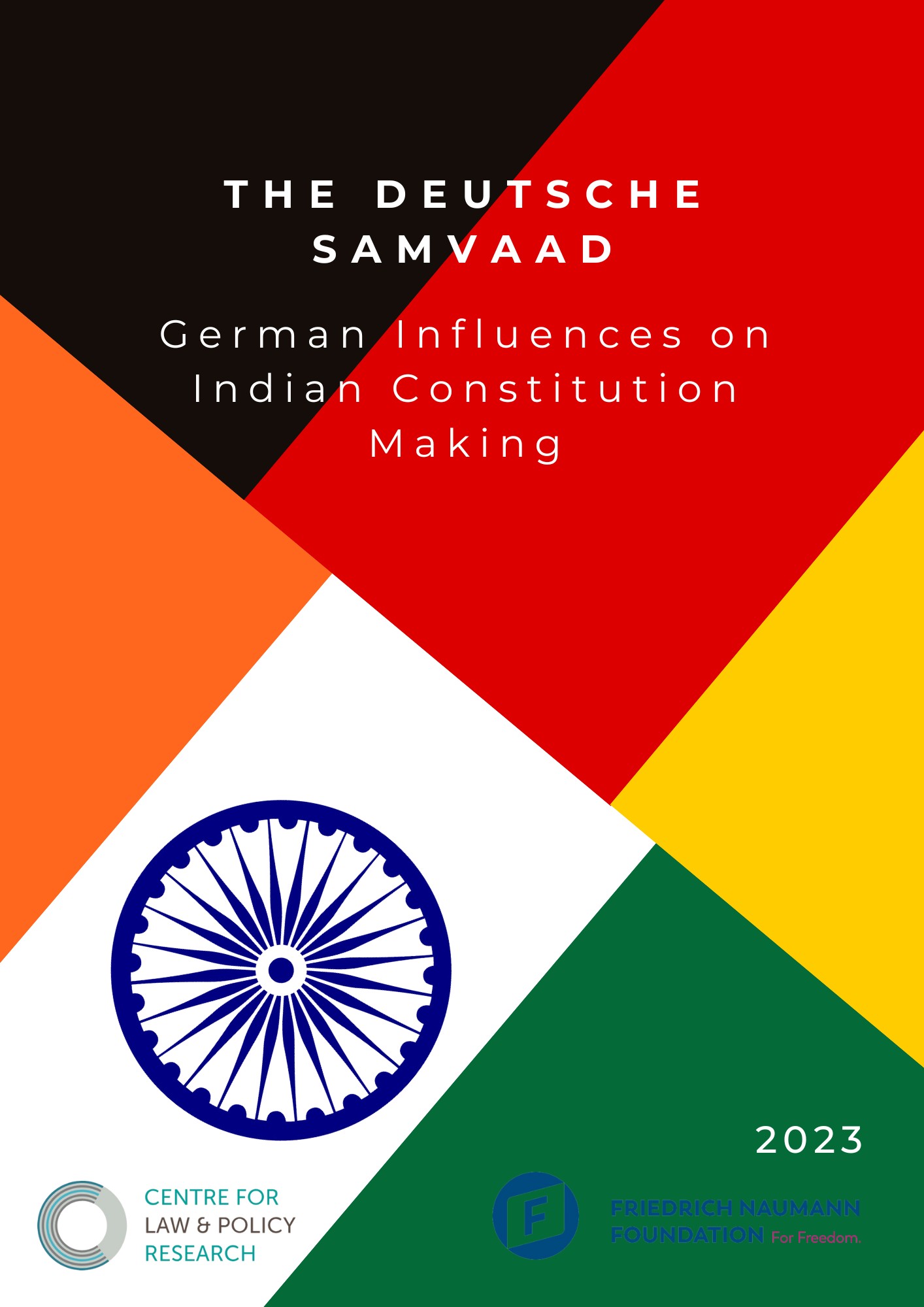
This report is an effort by CLPR to compile all the important judgements and materials on the Scheduled Caste and Scheduled Tribes (Prevention of Atrocities ) Act, 1989.

CLPR’s draft Equality Bill 2021 takes a new step in addressing discrimination experienced by people on the basis of caste, gender, religion, transgender and intersex identity, disability and other grounds. It aims to promote equality, prohibit different types of discriminatory conduct, provide adequate civil remedies and set up fora for redressal that are accessible and effective in addressing discrimination.
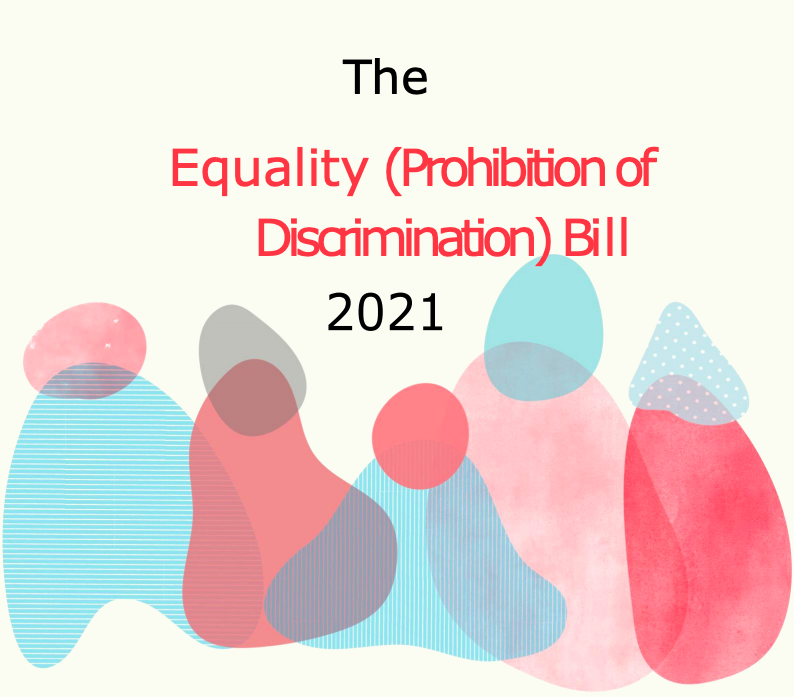
This Report is an attempt at presenting the needs and rights of the trans community as enshrined in our constitution to enable a just and dignified life during the Covid pandemic. It documents the specific vulnerabilities of the trans community in India and also suggests ways to address them.
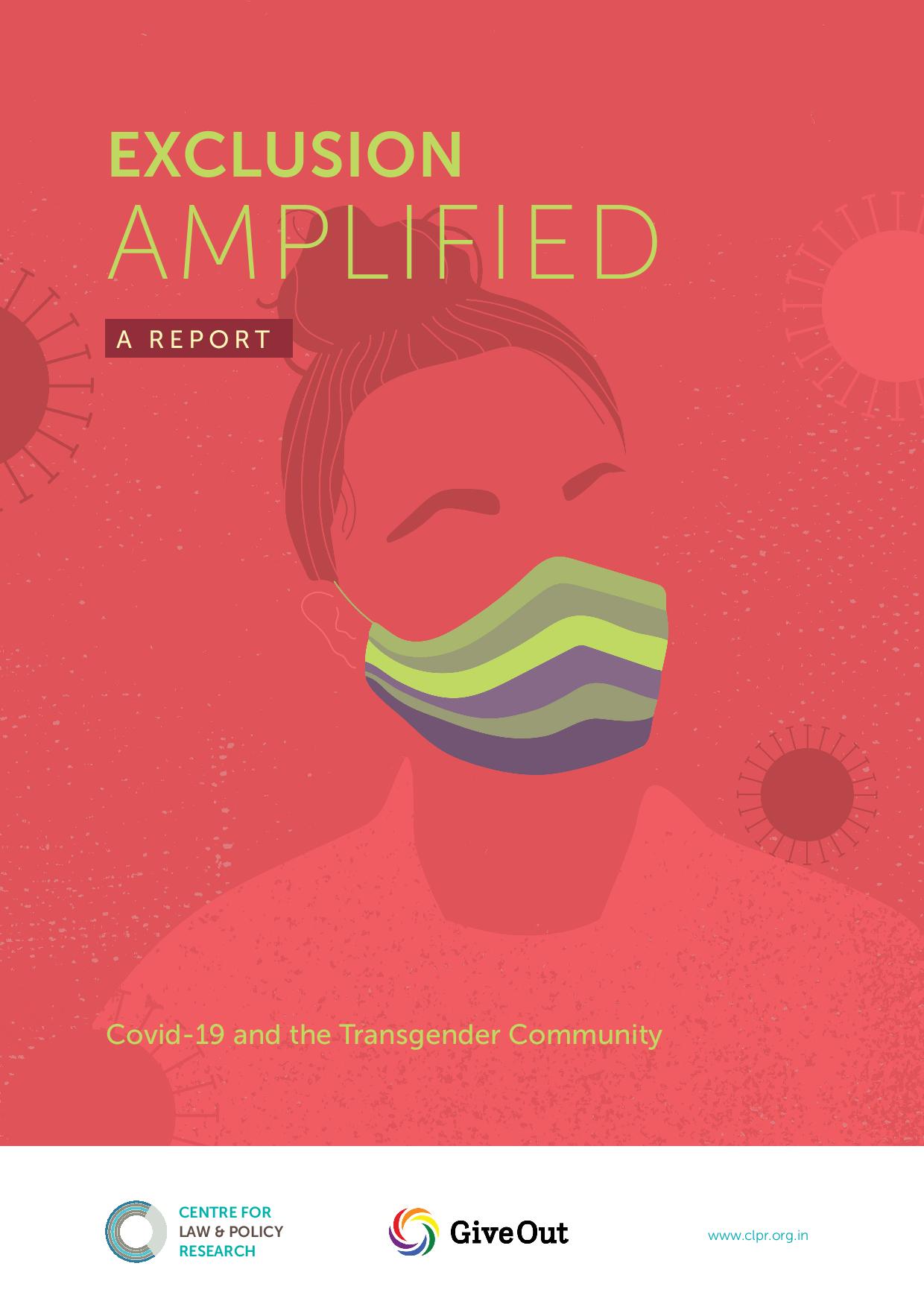
The study titled ‘Reimaging Bail Decision Making’ looks at bail decision making in trial courts in three districts in Karnataka – Bengaluru, Dharwad and Tumakuru. The research focuses on the courts, which are the primary site at which decisions on granting bail are made, to understand what guides the grant or non-grant of bail and what are the factors which decide whether bail is likely to be granted or not. These include the statutory basis for the offence, the nature of offence, its classification as bailable or non-bailable, the punishment prescribed and effective legal representation by lawyers.
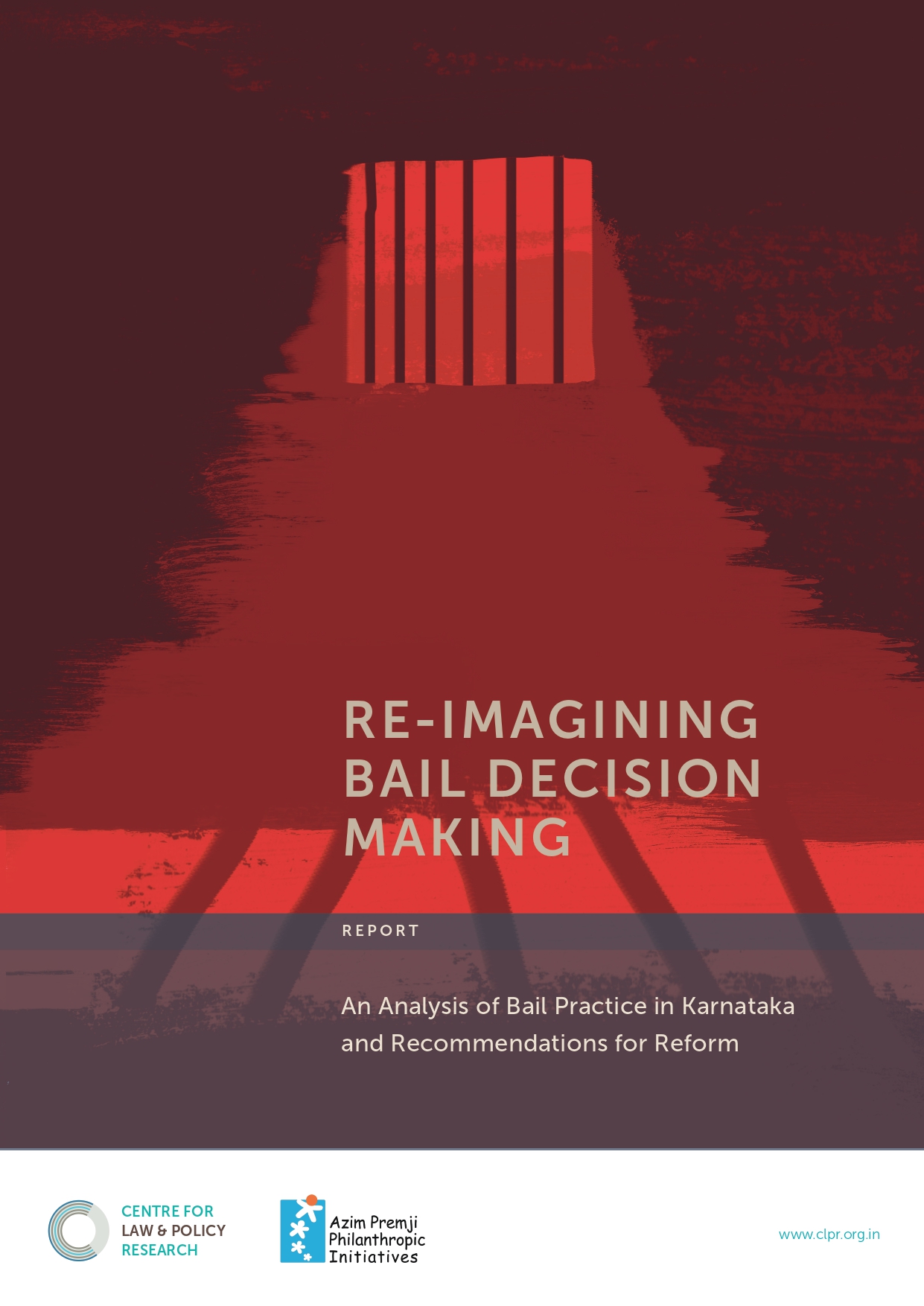
CLPR’s report collates the life experiences of intersectional discrimination in the four South Indian States of Andhra Pradesh, Karnataka, Kerala, and Tamil Nadu to understand the relationship between different intersecting identities and various sites of discrimination. The report finds that individuals who fall at the intersection of multiple identities face aggravated forms of discrimination in their daily lives. These gaps in the legal landscape are best addressed by a single and comprehensive equality legislation that adopts a broad approach and imposes positive equality duties on the State and private actors.
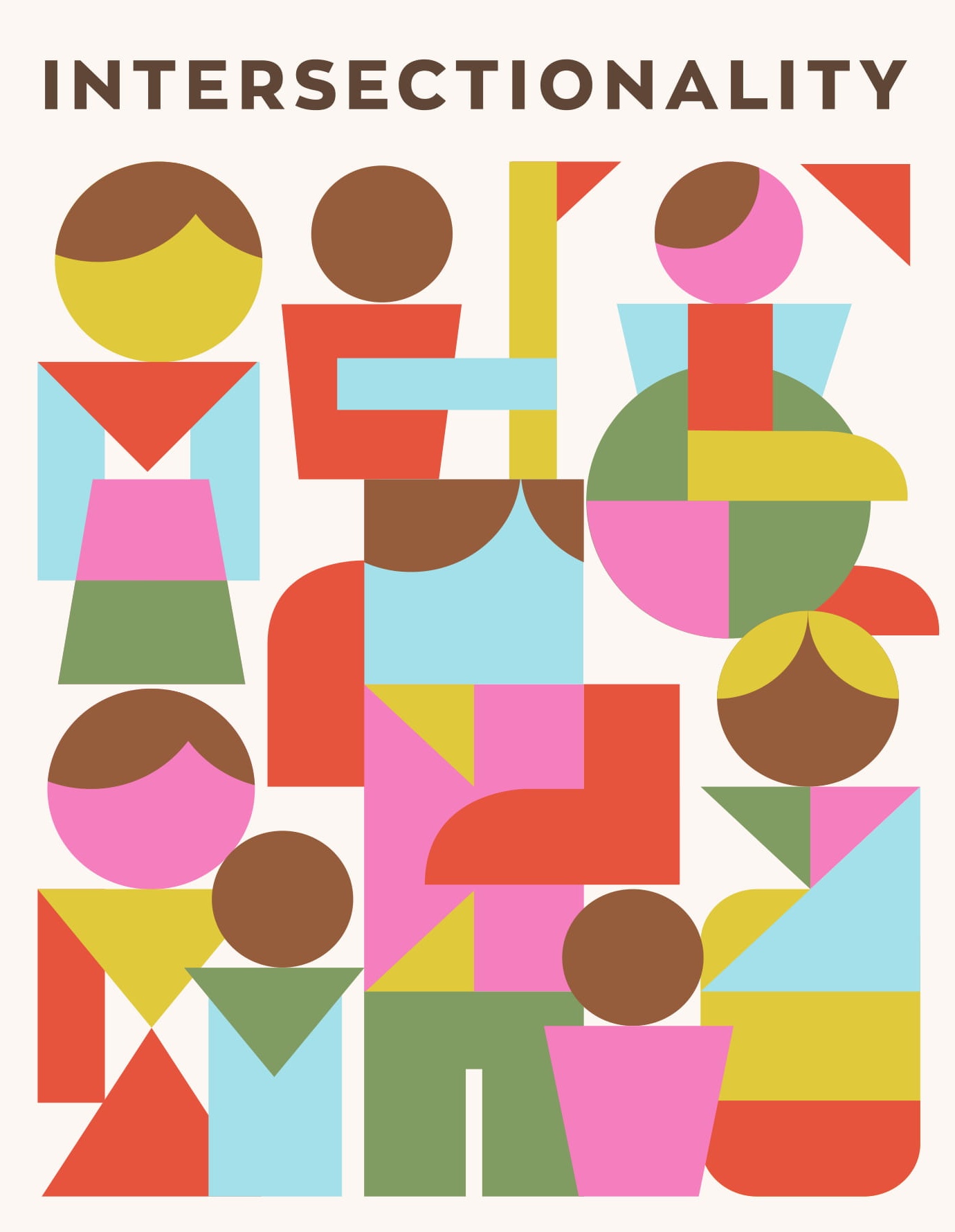
CLPR has conducted qualitative and quantitative research on discrimination faced by persons at the intersection of caste with gender, gender identity and disability. We presented the preliminary findings of the study on 21 November 2018 at a consultation organised with community members and other stakeholders. CLPR intends to prepare and publish a detailed report on the methodology and results of the study shortly.
As part of our collaborative work with Centre for Reproductive Rights, we translated easy-to-understand FAQ Brochures on Child Marriage for our outreach in Karnataka. The brochure contains the relevant legal framework around Child Marriage in India.
“Rights in Review″ is an annual review of Indian Supreme Court decisions on constitutional fundamental rights cases in the year past.
In 2017 we surveyed all reported decisions of the Supreme Court adjudicating fundamental rights challenges from Dec 15, 2016 to Dec 15, 2017. Once again we select cases which extend or modify existing legal doctrine, apply the law to new factual circumstances or otherwise have a significant impact on public policy or public affairs. We have identified 11 cases this year based on these criteria.
The World Health Organisation’s Framework Convention on Tobacco Control, is a treaty that is used “to protect present and future generations from the devastating health, social, environmental and economic consequences of tobacco consumption.” India, is a party to the treaty and actively participated in its enactment. This report reviews India’s compliance with Article 5.3 of the FCTC which pertains to the issue of States Parties’ obligations around conflict of interest. The report provides a detailed review of the legal principles emerging out of Article 5.3, considers examples of jurisdictions from around the world that have enacted laws to implement this article and reviews how compliant India has been with its obligations under this provision.
Although the report is ready, it can be made available only after the final approval from the Campaign for Tobacco Free Kids. Keep watching this space for more.
A factsheet on the extent of governmental subsidies made available to the tobacco industry through the Tobacco Board.
This Booklet explores litigation on tobacco vis a vis public health.
This report was a response to a pre-consultation paper released by the Telecom Regulatory Authority of India (TRAI) on the relationship between net neutrality and quality of internet service. The report also considers the issue of Voice over Internet Protocol (VoIP) calls and whether they are a threat to national security or privacy.
“Rights in Review″ is an annual review of Indian Supreme Court decisions on constitutional fundamental rights cases in the year past. We select cases which extend or modify existing legal doctrine, apply the law to new factual circumstances or otherwise have a significant impact on public policy or public affairs.
Rights in Review is a CLPR publication which analyses 15 key judgments ruled by the Supreme Court in 2015. This publication seeks to acquaint the reader with various aspects of fundamental rights protection and their relevance and impact.
The year 2015 saw the Supreme Court extend its scope of protection of fundamental rights to the internet in the case of Shreya Singhal v Union of India. This case struck down Section 66A of the Information Technology Act of 2000.
The report also elaborates on the stand taken by the Court in issues such as life, privacy, the death penalty, the reservation policy and the environment. The Court in 2015 paved the way to legislative and executive action in constitutional protection cases by triggering judicial review in the Article 14 equal protection cases and reservation policy case with respect to the Jat community.
Fast track courts have often been mooted as a solution to the extensive delays that plague the functioning of “normal” courts in India. In 2012 a special court to exclusively try cases of child sexual abuse under the “Protection of Children from Sexual Offences Act, 2012 (“POCSO”)” was set up. In 2013, the Karnataka state government set up 10 special fast track courts in the state only for trying cases of rape and sexual assault against women under Section 376, IPC.
Rights in Review is a CLPR publication which analyses 15 key judgements ruled by the Supreme Courtin 2014. This publication is aimed at acquainting the reader with various aspects of fundamental rights protection and the relevance and impact of the decisions in public life.
This Report presents the analysis, findings and recommendations of a study conducted by the Centre for Law and Policy Research on the use of the courts for grievance redressal by teachers in government and government-aided private schools in nine States in India for the period from 2009 to June 2014.
This Report examines the state of the right to health for persons with disabilities in India from the perspective of “equal access” and “non-discrimination.” It is based on an empirical study conducted by CLPR on the experiences of persons with disabilities in accessing healthcare. In addition to the empirical study, it also draws on the insight gathered from four zonal and one national consultation meetings organized by CLPR on disability rights. The outcomes from the consultations have been referenced in this paper. This Report was prepared for Human Rights Law Network, Indian Association of Muscular Dystrophy and National Alliance on Access to Justice for People Living with Mental Illness.
This report argues for the introduction of a judicial remedy in the form of a cause of action against police officers in their individual capacity for violations of constitutional rights. This recommendation was made in light of the government’s failure to implement the reforms mandated by the Supreme Court in Prakash Singh v. Union of India (2006) 8 SCC 1
CLPR in collaboration with the Centre for Internet and Society (CIS) put together the National Resources Kit for Persons with Disabilities. This resource kit was prepared in order to facilitate access to relevant information for all stakeholders. This was done with the aim of ensuring meaningful participation of disabled individuals in governance.
In light of the upcoming 2014 Lok Sabha elections, CLPR in collaboration with the Centre for Internet and Society, has prepared a Report titled “Enabling Elections: Making the 2014 General Elections Participatory and Accessible for Voters with Disabilities”. This Report addresses the barriers that voters with disabilities face during elections and recommends solutions for the same. A representative democracy is defined by its access to voting and full participation in the political affairs of the country equally for all its citizens, which includes voters with disabilities. This report analyses the legal framework on the rights of persons with disabilities with respect to free and fair elections and argues that the State is constitutionally mandated to enforce this right. The Report examines the relevant provisions of the Representation of People Act, 1951, the Constitution, the relevant directions of the Supreme Court of India and the international conventions.
The Centre for Law and Policy Research presents its working paper on “Recasting the Judicial Appointments Debate: The Constitutional (120th Amendment) Bill, 2013 and Judicial Appointments Commissioner Bill, 2013”
India ratified the UN Convention on the Rights of Persons with Disabilities 2006 (UNCRPD) and the Optional Protocol to it in 2007. The UNCRPD‘s objective is to protect and promote the rights of persons with disabilities from a social model unlike the earlier medical model of disability. It ensures that persons with disabilities become holders of rights rather than being objects of welfare measures and medical treatment (UN et al 2007). To that extent, ―the UNCRPD marks a paradigm shift in attitudes and approaches to persons with disabilities and views them not as objects of charity, ‘but subjects with rights'(Murthy 2010: 153).
CLPR collaborated with the Centre for Internet and Society and Inclusive Planet to assess the Working Draft on the Rights of Persons with Disabilities Act, 2010 (the 1 December, 2010 version) and examine the extent to which the Drafting Committee had exceeded its mandate.
Filter by
By Categories
By Types